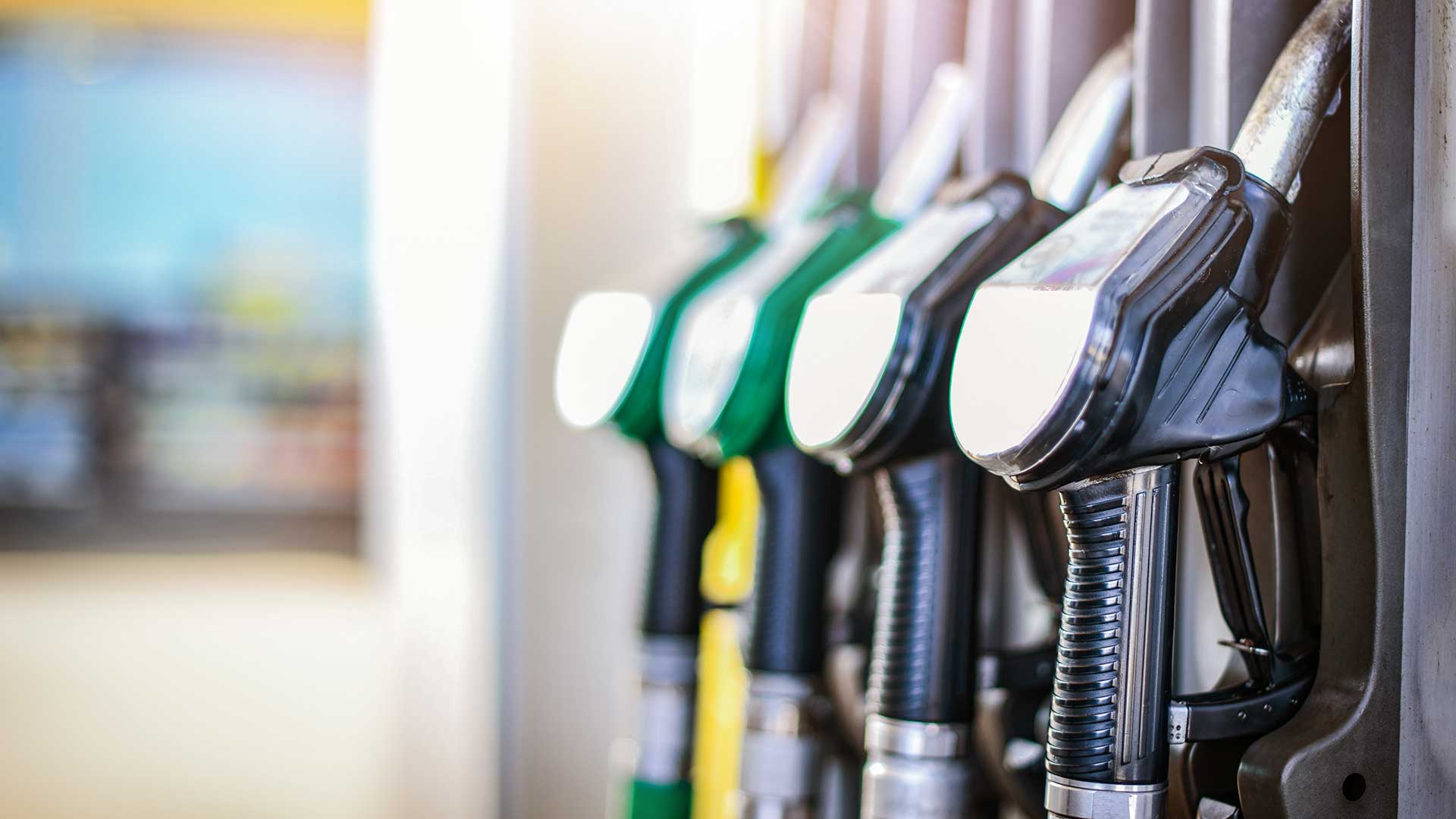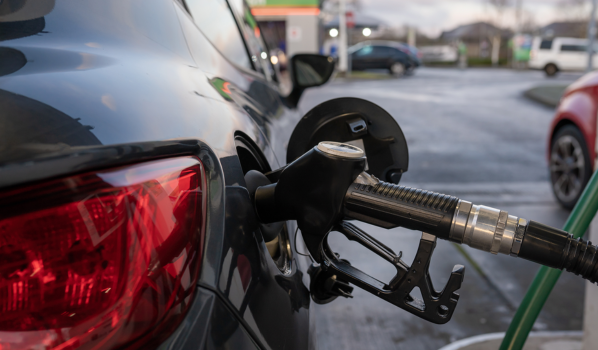Sponsored
Choosing premium fuel will likely cost you more at the pump than standard fuel, but there can be some benefits to using it. In this article, we will cover the various performance and efficiency benefits premium fuel can provide – and its potential drawbacks. We’ll also take a look at the various types of premium fuel on the market and how they differ from one another.
Why choose premium fuel?
If you have a high-performance vehicle, you may have to fill your tank up with premium fuel to ensure it runs effectively, as powerful engines can struggle with regular octane oil. However, even if you drive a non-performance vehicle, you might want to invest in premium fuel so that the engine runs to the best of its ability, flushing out any deposits left from high mileage or overuse.

What is premium petrol?
Premium performance petrol, also known as super fuel, is petrol that has a higher Research Octane Number (RON). Octane is one of the chemical components within petrol, and the amount of octane in the fuel will affect how well the petrol will work in higher compression engines. Standard petrol usually has a RON of 95, whereas premium petrol has a higher RON of around 97 – in some cases, reaching up to 100.
Advantages of premium petrol
One of the main advantages of premium petrol is that it has an official rating. Unleaded premium fuel has an octane rating which shows how well the fuel resists pressure and premature ignition. Premium petrol can also help to reduce friction, resulting in cleaner engine components and a more efficient performance.
Older vehicles in particular might benefit from additional cleaning with premium fuels – using premium petrol for a couple of full tanks can create a cleaner, more efficiently running engine.
Disadvantages of premium petrol
The only cars that really need premium petrol are high-performance vehicles. There isn’t any physical proof or research to show the benefits of premium petrol, apart from the claims made by those who produce them. Premium fuel also costs considerably more than standard petrol, so you’ll find yourself more out of pocket when filling up.
UK petrol grades
In the UK, the most common types of petrol are regular unleaded, premium 95 and premium 99. Let’s take a look at the two most common petrol grades you’ll find on UK forecourts:

E5 petrol
E5 petrol is made up of 95% unleaded petrol plus 5% ethanol. As with E10, it’s important to check your model’s suitability before filling up with this fuel. Cars made before 2002 are usually not compatible with ethanol. E5 is generally what is sold as regular unleaded petrol.
E10 petrol
E10 fuel is a blend of regular unleaded with 10% ethanol and is now widely available at most petrol stations. Most cars will run on E10, but it’s important to check your model’s suitability before doing so. At the pump, E10 is usually cheaper than unleaded petrol because it’s commonly made from sugar cane, wheat, or sorghum, and it’s subsidised. Although it’s cheaper to fill up, E10 can increase fuel consumption, particularly when used initially.
Unleaded vs super unleaded
Unleaded is the standard fuel available, and what you’ll find at most petrol pumps. Super unleaded petrol is usually a higher-octane version of this fuel. Super unleaded petrol usually has a rating between 97 and 99 RON.
Ethanol-free petrol
Whilst most modern cars won’t see any issues running on E5, classic cars, for example, will really struggle, as they aren’t built with ethanol in mind. You will have to seek an ethanol-free petrol if you require this. ASPEN is an ethanol-free petrol, found across the UK.
What is premium diesel?
Premium diesel, unlike premium petrol, doesn’t usually feature a higher octane rating, as diesel engines don’t ignite fuel to create power. Instead, premium diesel features chemicals in its mixture that are designed to shift soot deposits and other build-up from the engine’s fuel system.
Advantages of premium diesel
Premium diesel might help your engine to run smoother and cleaner, which can improve performance and economy with regular use. This may be more noticeable with older or higher mileage vehicles than with brand-new cars that haven’t yet had time to develop engine build-up. Some drivers report that it has also contributed to a cleaner Diesel Particulate Filter (DPF) with fewer warnings and issues, but this isn’t scientifically proven.
Disadvantages of premium diesel
Premium diesel is only really worthwhile if a vehicle has had the chance to accumulate sediments within the engine. If not, then you probably won’t notice too much of a difference when using premium diesel and it’s considerably more expensive at the pump. And, as diesel is more expensive than petrol anyway, this might not be the best economical option.
What is cetane in diesel?
Cetane is a chemical compound naturally found in diesel, igniting easily under pressure. Its high flammability ensures that it serves as the industry-standard measure for evaluating fuel combustion quality. Therefore, all diesels will have a cetane number, and this number will be higher for premium diesels.
Supreme diesel vs normal diesel
As we’ve already mentioned, supreme diesel has a higher cetane rating than regular diesel, meaning it will help your car to ignite faster. This is particularly beneficial for cold starts. It can also contain cleaning agents which will lessen any build-up within your engine.
Premium petrol and diesel vs LPG fuel
LPG stands for ‘Liquefied Petroleum Gas’, and is made of propane and butane. It’s cheaper than regular petrol and diesel, but cars need to be specifically converted to run on the gas. It’s highly efficient, better for the environment than premium fuels, but not every car is equipped to run on it.
LPG fuel’s limited availability also presents a challenge for its users. At present, 368 UK fuelling stations offer LPG for public sale (just 4% of the total number), whereas petrol and diesel fuel are available everywhere. So, bear in mind that if you opt for an LPG vehicle, you’ll have to plan journeys a little more carefully.
Although there is a relatively widespread concentration of LPG stations throughout the UK, availability falls a little short of the public’s needs and is now dwindling. Earlier this year, the Motor Fuel Group (MFG), the UK’s largest independent forecourt operator announced that they will remove auto-LPG from all their forecourts by 2024.
Fuel additives
You might have seen bottles of fuel cleaner littered around petrol stations, boasting benefits such as increased fuel economy and lower emissions. They are available for both petrol and diesel, however, they won’t really make much of a difference unless you drive an old car. Similar fuel additives are already present in premium petrol and diesel, so simply filling up with a tank of premium fuel will achieve similar results.
Is it worth paying more for premium fuel?
If your car is less than ten years old and has a mileage under 80,000, there probably won’t be too many benefits of using premium fuel, unless it’s a performance vehicle. However, if you’ve found that your car has been feeling a bit knackered, try filling your tank up with a high-octane fuel next time to see if you notice any change. Premium fuel is usually touted to contain additives that clean the fuel system of the car, which can be especially effective for any carbon deposits inside the combustion chamber. Cleaning your engine in this way can help to prevent damage, subsequently preserving some of your car’s resale value. To get a free 30-second estimate for your car, use our simple Car Valuation tool.